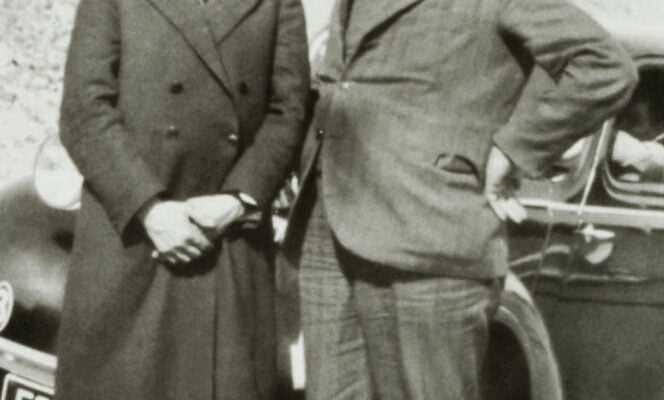From the summer of 1941, Jacques Truelle, a French diplomat stationed in Bucharest, regularly sent dispatches to Vichy detailing the massacres targeting the Jews. From that time, he evokes dramatic events that occurred in Romania, under German occupation and under the rule of a collaborationist government. He also reports news from Ukraine, which the Wehrmacht has just invaded and where the Holocaust begins with bullets. These are no longer pogroms, he guesses.
He warns of the possibility of an extermination plan. Its cables will remain dead letters, and for good reason: the collaborationist Vichy regime has also swung into a resolutely anti-Semitic policy. The roundups of Jews begin in Paris and, from the internment camps of Drancy, Pithiviers or Beaune-la-Rolande, the first convoys of deportation to Auschwitz are announced. In 1943, the diplomat, freed from this Pétain to whom he had taken an oath, joined Free France.
Some freedom of movement
Jacques Truelle is one of the characters brought out of oblivion by the exhibition “Les Diplomates face à la Shoah”, hosted by the Mémorial de la Shoah, in Paris, until May 8. This is an original crossing of the war, seen from the embassies. The attitude of these privileged witnesses to the persecutions and how they reported to their respective governments is described. Some figures are known and have long gone down in history for their heroism. The Swede Raoul Wallenberg and the Portuguese Aristides de Sousa Mendes, one in Hungary and the other in France, saved thousands of Jews by granting them passports or saving visas.
The four scientific curators – Catherine Nicault, professor of contemporary history at the University of Reims, Claire Mouradian, emeritus research director at the CNRS, Jean-Marc Dreyfus, professor at the University of Manchester, and André Kaspi, emeritus professor at the Sorbonne – bring out many other names, European or Asian diplomats who tried to warn about what was going on and then brought their help to the Jews threatened with death.
Unsurprisingly, like the rest of the population, the ambassadors will be divided, unequally, between resisters, collaborators and indifferent. Despite a status that granted them a certain freedom of movement, very few would rebel against the orders of non-intervention from their respective governments. “Forty diplomats were declared ‘righteous among the nations'”, says Claire Mouradian. The last, recognized as Just in 2020, is a Frenchman, François de Vial. Attached to the French Embassy in the Vatican, he hid Jews with the complicity of ecclesiastics stationed in Rome.
You have 49.17% of this article left to read. The following is for subscribers only.
